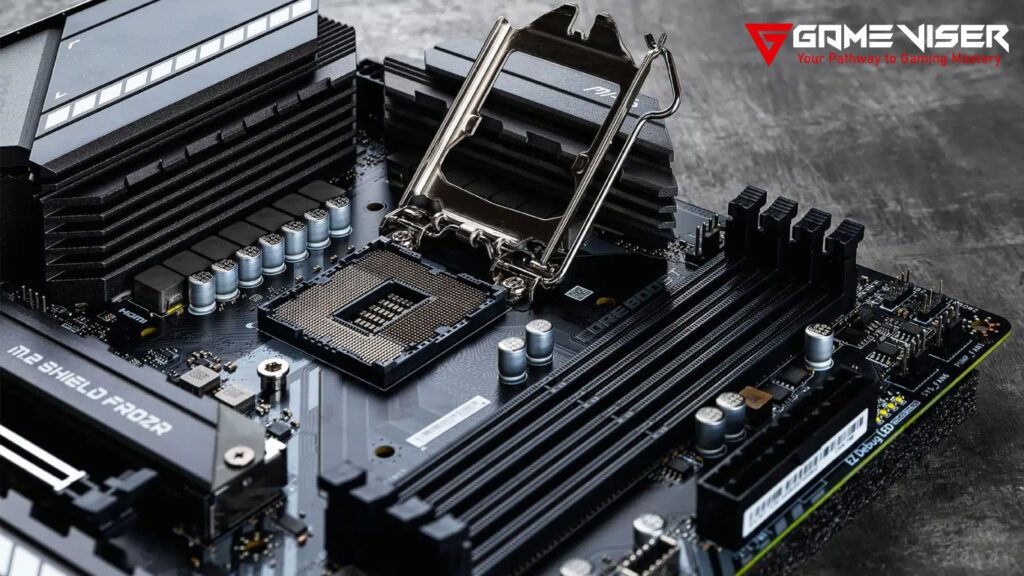Discover the key differences between Intel’s i7 Ultra and the regular i7 processors. Learn about performance, power efficiency, features, and which one is the best fit for your computing needs.
Table of Contents
Introduction
Intel’s Core i7 processors have been renowned for delivering high-end performance to consumers who need more power than the i5 range but don’t require the extreme capabilities of the i9 processors. Recently, the launch of the i7 Ultra processor has created a buzz, making consumers wonder how it compares to the standard i7. Is the i7 Ultra just a marketing gimmick or is it genuinely a better option?

In this article, we’ll provide you with a detailed comparison between these two powerful processors to help you choose the one that fits your computing needs.
What is Intel Core i7?
Intel Core i7 processors are part of Intel’s lineup of high performance CPUs. Positioned between the mid-range Core i5 and the flagship Core i9 processors, the i7 series is designed for gamers and professionals who require robust computing power for multitasking, gaming, content creation, and more.
Key Features of Intel Core i7
- Core Count: Typically 6-8 cores, depending on the specific model.
- Threads: Hyper-threading technology allows each core to handle two threads, giving it an edge in multitasking.
- Turbo Boost Technology: Allows the processor to automatically increase its clock speed when under heavy load.
- Integrated Graphics: Some i7 models come with Intel Iris Xe integrated graphics for users who don’t need a dedicated GPU.
- Power Efficiency: Strikes a good balance between performance and energy consumption.
The Core i7 range is often found in high-end desktops and laptops, offering enough performance to handle everything from gaming to video editing without breaking a sweat.
What is Intel i7 Ultra?
Intel’s i7 Ultra is a recent addition to the i7 lineup, and it represents a step up in terms of technology and performance. The term “Ultra” suggests that this processor is more advanced than the standard i7 models, but what exactly sets it apart?
The i7 Ultra is built on Intel’s latest architecture, incorporating advancements in power efficiency, clock speeds, and AI capabilities. It is tailored for users who demand top-tier performance, whether for gaming, professional workstations, or heavy multitasking.
Key Features of Intel i7 Ultra:
- Enhanced Core and Thread Count: Often includes more cores and threads than the standard i7.
- Higher Clock Speeds: Improved base and turbo boost clock speeds for superior performance.
- Larger Cache: Provides faster data access and improved overall processing power.
- Advanced Power Efficiency: Optimized for better power management, which can extend the battery life in laptops and improve thermal performance in desktops.
- AI Integration: Advanced AI instructions allow better processing for machine learning tasks.
Performance Comparison
Now that we have a basic understanding of what each processor offers, let’s look how they compare in terms of performance.
1. Core Count
The Core i7 traditionally offers between 6 and 8 cores, with Hyper-Threading enabling each core to handle two threads simultaneously. This results in 12 to 16 threads, which significantly boosts multitasking and processing capabilities.
However, the i7 Ultra takes this a step further. Many i7 Ultra models offer 8 cores and up to 16 threads, with some high-end versions even surpassing this count. More cores and threads equate to better multitasking and faster processing times for complex tasks, such as rendering videos or running virtual machines.
2. Clock Speed
The base clock speed of an Intel Core i7 processor generally ranges from 2.5 GHz to 3.8 GHz, with Turbo Boost allowing it to reach speeds of up to 5.0 GHz under load. While these speeds are impressive, the i7 Ultra is designed to push these limits even further.
With improved cooling solutions and more efficient architecture, the i7 Ultra often boasts higher base clock speeds starting from 3.0 GHz, with turbo speeds that can exceed 5.1 GHz. For applications that require single-core performance, this can make a significant difference.
3. Cache Size
The cache size plays a crucial role in the processor’s ability to quickly access frequently used data. A larger cache reduces the need to access slower system memory, thereby improving performance in compute-intensive tasks.
The standard Core i7 processors typically offer a cache size of 12MB to 16MB, which is adequate for most users. The i7 Ultra, however, may feature a larger cache, up to 20MB or more, providing even faster access to frequently used data and enhancing performance in tasks such as gaming and content creation.
Power Efficiency and Thermal Management
Power efficiency is an essential factor, particularly for laptop users who require longer battery life. Both the i7 and i7 Ultra processors feature Intel’s advanced power management technologies, but the i7 Ultra is more finely tuned for energy efficiency.
Thanks to Intel’s latest manufacturing process and architectural advancements, the i7 Ultra consumes less power during idle periods and manages heat more effectively under load. This leads to cooler operating temperatures and potentially longer battery life in portable devices.
Gaming and Content Creation Performance
Gaming Performance
For gamers, the choice between the i7 and i7 Ultra depends on the types of games they play and the performance they expect. While both processors can handle AAA titles with ease, the i7 Ultra offers slightly better performance in CPU-bound games due to its higher clock speeds and increased cache size. Games that demand a lot of processing power, such as open-world titles or those with complex physics engines, will benefit from the additional power of the i7 Ultra.

Content Creation Performance
When it comes to content creation tasks like video editing, 3D rendering, and streaming, the i7 Ultra pulls ahead of the standard i7. The extra cores and higher clock speeds allow it to handle rendering and encoding tasks more efficiently, reducing overall processing time. If you’re a professional content creator, the i7 Ultra will save you valuable time in post-production workflows.
AI and Machine Learning Capabilities
One of the more notable advancements in the i7 Ultra series is its enhanced AI capabilities. With dedicated AI instructions, the i7 Ultra can accelerate machine learning tasks, such as image recognition, data analysis, and AI-driven applications. This feature is particularly beneficial for developers working in artificial intelligence or data science, as it speeds up model training and data processing.
The standard i7, while still capable of handling these tasks, lacks the specialized AI instructions found in the Ultra series, making it less efficient for machine learning workflows.
Price and Availability
Price is a crucial factor when deciding between the i7 and i7 Ultra. The regular i7 processors are generally more affordable and offer excellent performance for most users. Whether you’re gaming, multitasking, or working with productivity applications, the i7 delivers strong performance at a reasonable price point.
The i7 Ultra, however, comes with a premium price tag. It is targeted at enthusiasts, professionals, and power users who need the best performance money can buy. If you have the budget and require top-tier performance for heavy workloads, then the i7 Ultra is a worthwhile investment. However, for most users, the extra performance may not justify the increased cost.
Which Should You Choose?
Deciding between the i7 and i7 Ultra comes down to your individual needs. If you’re a gamer, content creator, or professional who demands the best performance possible, the i7 Ultra’s extra cores, higher clock speeds, and enhanced AI capabilities will make a noticeable difference. However, if you’re an average user who doesn’t need cutting edge performance, the standard i7 offers more than enough power for everyday tasks and even some demanding applications.
Here’s a quick summary to help you decide:
- Choose i7 Ultra if:
- You need superior performance for gaming, content creation, or professional work.
- You want the latest advancements in AI and machine learning capabilities.
- You don’t mind paying a premium for top-tier performance.
- Choose i7 if:
- You want excellent performance at a more affordable price.
- You’re a casual gamer or a multitasker who doesn’t need extreme processing power.
- You’re working within a budget and don’t need advanced AI capabilities.
Conclusion
Both the Intel Core i7 and i7 Ultra processors deliver exceptional performance, but they cater to different audiences. The i7 Ultra is a performance beast, ideal for users who need cutting-edge processing power for gaming, professional applications, or AI-driven workloads. The standard i7, on the other hand, offers great value for most users who need a powerful, reliable processor for everyday computing tasks.
Ultimately, your choice should be based on your needs and budget. If you’re looking for a processor that can handle anything you throw at it and don’t mind the higher price, go for the i7 Ultra. However, if you’re looking for strong performance without breaking the bank, the i7 is still a fantastic choice.
FAQs
Is the Intel Ultra 7 the same as the i7?
No, the Intel Ultra 7 (i7 Ultra) is a more advanced version of the regular i7, offering higher performance with more cores, threads, improved clock speeds, and better power efficiency.
Is the Intel Ultra 7 good for gaming?
Yes, the Intel i7 Ultra is excellent for gaming, especially for CPU-intensive games. It offers higher clock speeds and better performance compared to the regular i7, providing smoother gameplay and better multitasking.
Is Ryzen 7 better than the i7 Ultra?
It depends on the specific model and use case. Ryzen 7 CPUs offer strong multi-threaded performance, but the i7 Ultra may outperform Ryzen 7 in single-core tasks and gaming due to its higher clock speeds. Each processor has strengths depending on the workload.
What is the difference between Intel Core and Ultra?
The Ultra designation signifies a higher-performing version of the Intel Core processor, with more advanced features like increased core count, higher clock speeds, and better efficiency compared to standard Intel Core models.
What is an Ultra processor?
An Ultra processor refers to a more powerful, high-end version of an Intel CPU, designed to provide enhanced performance, especially in demanding tasks like gaming, content creation, and AI processing.
What is Ultra Core 7?
Ultra Core 7 (or i7 Ultra) is an enhanced version of Intel’s Core i7 processor, featuring better performance, more cores, and improved energy efficiency for high-performance computing tasks.




